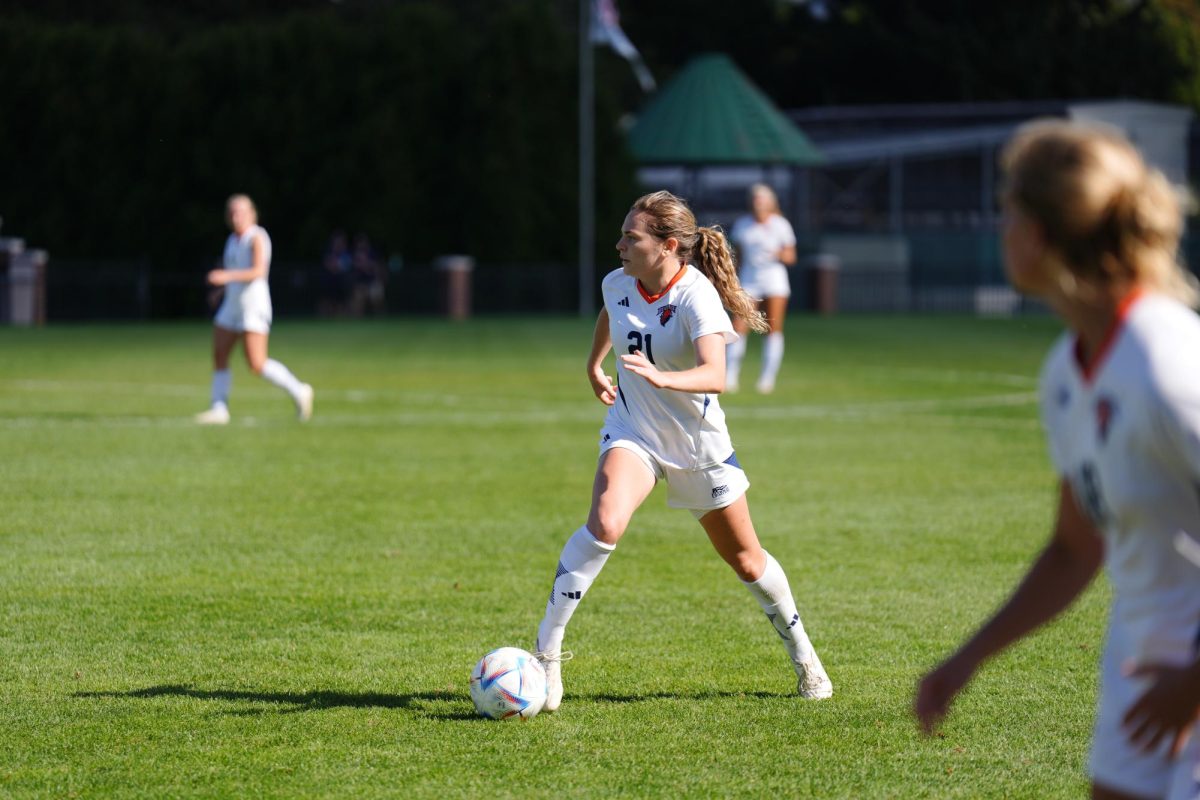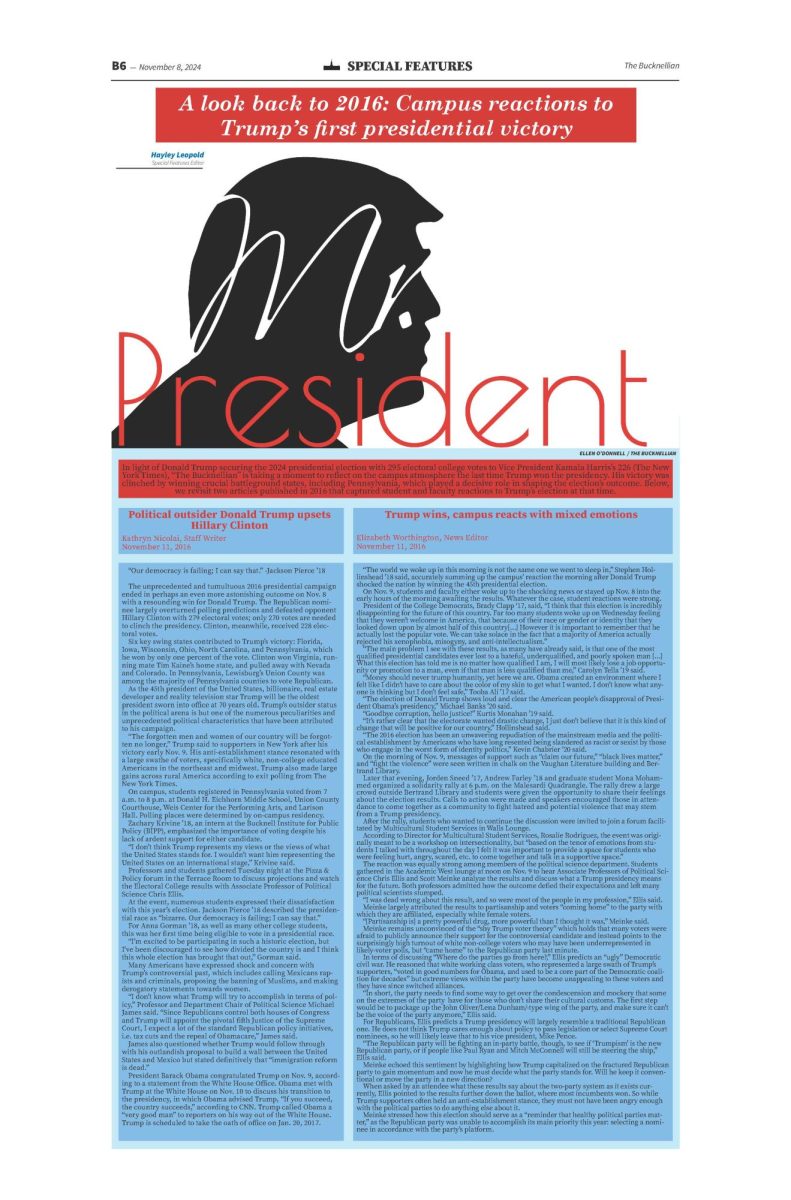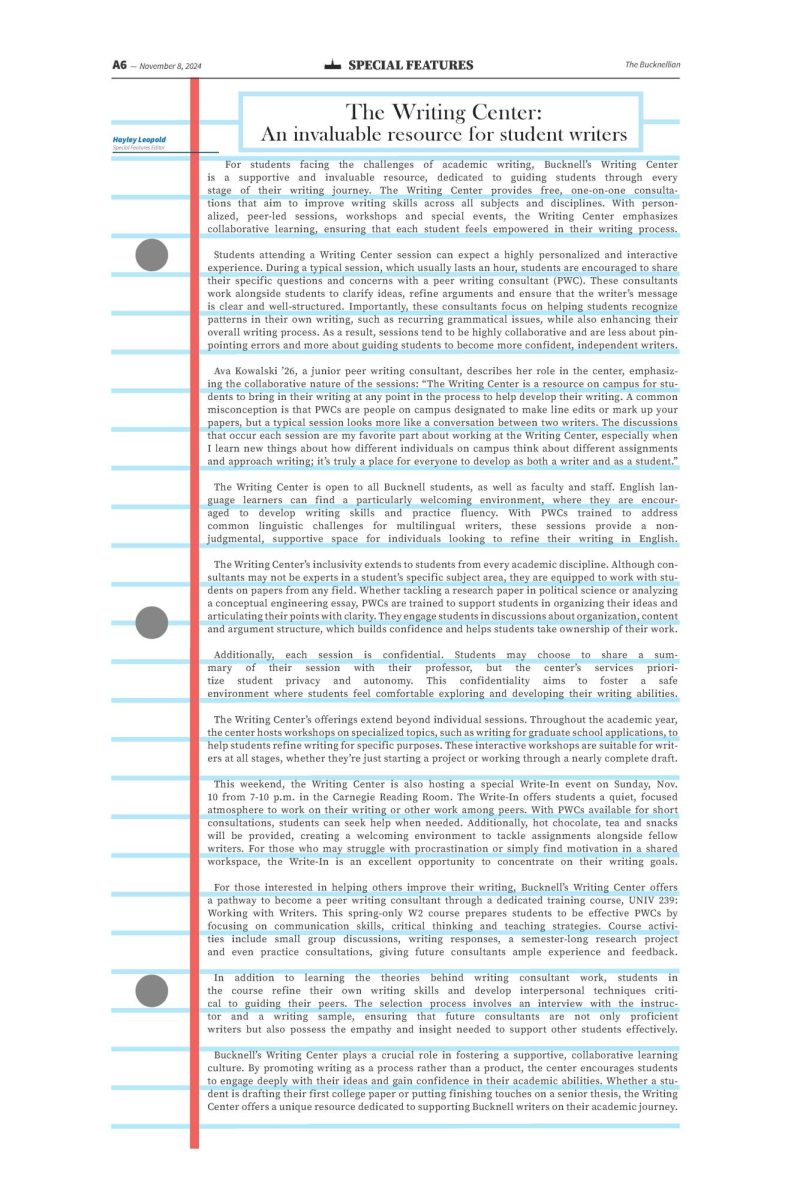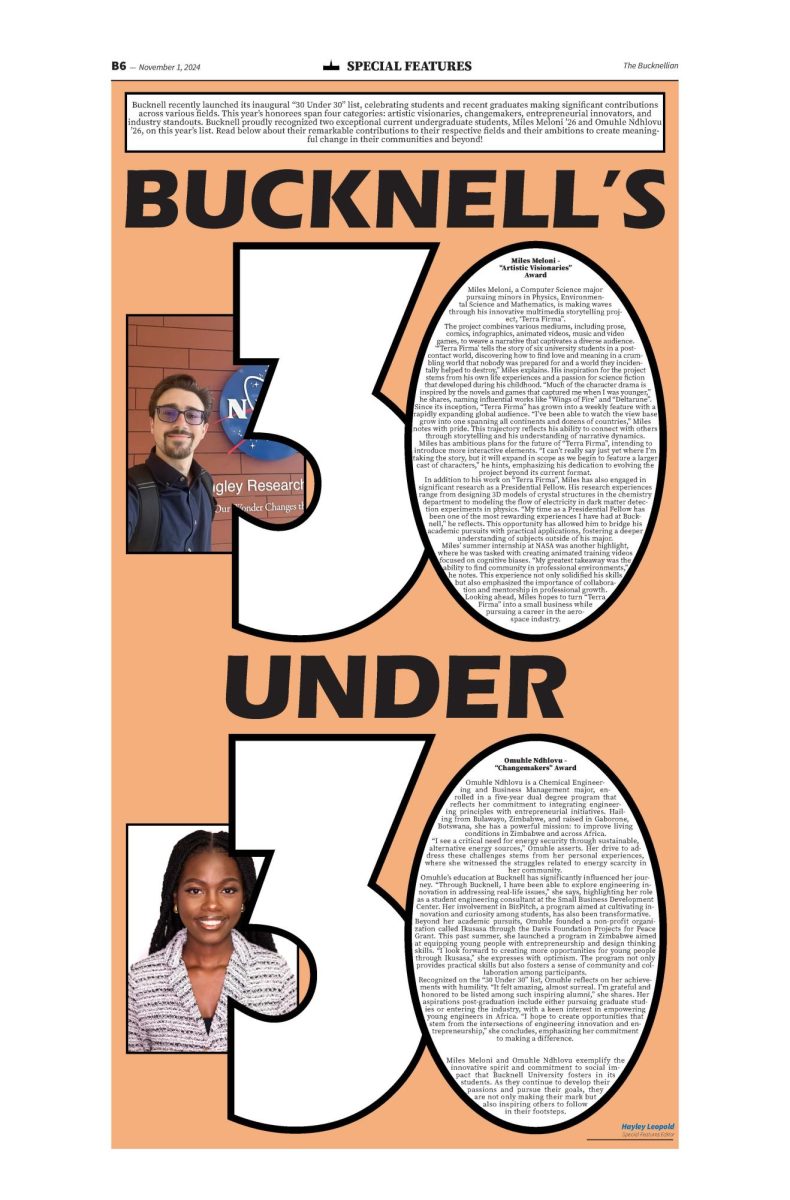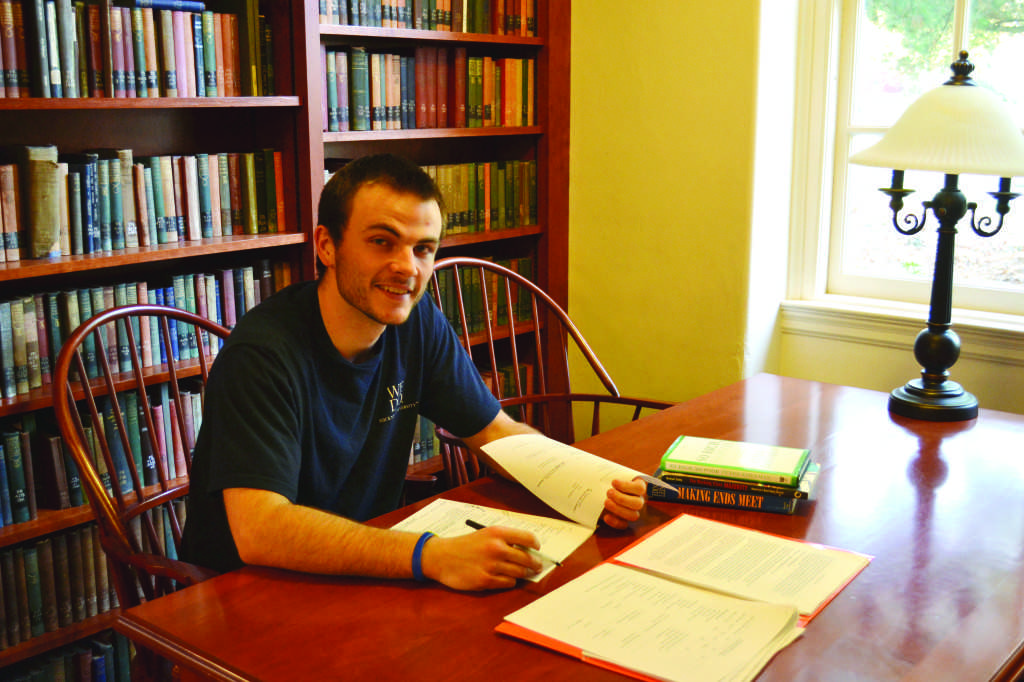Shannon Beauregard
Contributing Writer
Economics major Darby Hamilton ’15 is conducting research this semester on the impact of the 2007-09 recession on the Susquehanna River Valley Region.
“This research project is meant to ascertain how different levels of income, wealth, or other support systems might have caused the families within the Susquehanna River Valley Region to handle the impact of the Great Recession more severely,” Hamilton said.
The research considers a range of variables, in addition to income, to assess how local families were affected. Some of these variables include the size of the family, whether or not there are disabled family members that require increased health costs, transportation costs associated with each family, whether the family owns a home, and how gender or racial discrimination impacted the family during the recession.
“There’s very little data on specific regions because of quantities that aren’t taken into account on traditional measurements,” Hamilton said.
At the end of the previous spring semester, Hamilton asked his adviser, Associate Professor of Economics Nina Banks, if he could begin his own research project. He came up with the research idea on his own.
“Darby’s project will provide valuable information on the unmet needs of low-income households in the local community as well as provide a broader measure of poverty,” Banks said. “Mr. Hamilton’s research is also important in that he has been researching poverty effects on a broad cross-section of the poor; most studies restrict their analyses to households comprised of single moms and their children since they have been so adversely affected by welfare reform.”
Hamilton worked on a survey questionnaire on campus during the summer. The survey was designed through working in the Susquehanna community so that it would touch upon a variety of topics. Hamilton conducts the surveys by interviewing families throughout the Susquehanna River Valley Region.
“This certainly limits the scope of my research, but will allow me to get a clearer picture of a family’s position within the community, rather than simply knowing they’re technically considered poor,” Hamilton said.
Hamilton hopes the research will also reveal how differently a rural community is affected by a recession from a suburban or urban community.
“I have become fascinated with the topic. I love to learn how people are actually affected by hard times. Everyone knows the recession left people very poor, but there is little data on how people coped with the very real effect of the economic recession in the rural community,” Hamilton said.
Hamilton will present the results of his research at the Kalman Research Symposium. He also hopes to present his findings at the National Undergraduate Research Symposium in April.






